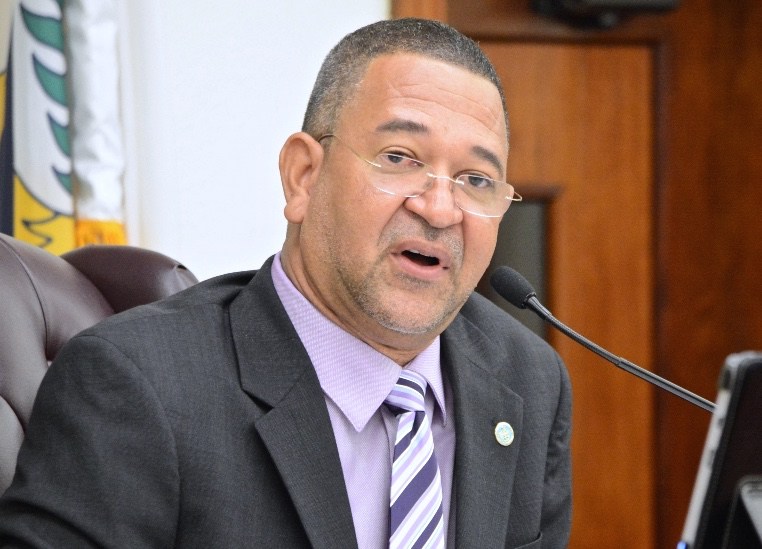CHARLOTTE AMALIE — The Virgin Islands government is grappling with a staggering revenue shortfall in the wake of the two category 5 hurricanes that hit prior to its fiscal year ending, the Virgin Islands Free Press has learned.
The territorial government — led by Gov. Kenneth Mapp — is trying to overcome a 36 percent deficit in the current fiscal year, even after figuring in a $300 million Federal Emergency Management Agency (FEMA) community disaster loan.
The fiscal year started Oct. 1, amid infrastructure devastation that followed Hurricanes Irma and Maria in September.
The Virgin Islands Legislature has decided to borrow no more than $500 million total in federal community disaster loans, Sen. Jean Forde said.
“We certainly don’t want to get too far further into debt,” Forde said.
The local government and Virgin Islands Water and Power Authority (WAPA) was carrying more than $2 billion in debt before any talk of a federal loan after the devastation here.
This fall, S&P Global Ratings and Fitch Ratings withdrew their ratings, which had been deep in the speculative range, after the islands’ government stopped sharing financial information with them.
Moody’s Investors Service rates the senior and subordinated matching fund bonds Caa1 and the subordinated indenture Diageo (DEO) and Cruzan bonds Caa2. Moody’s has both ratings under review with the direction uncertain.
The local Senate has also voted for the government to draw down no more than $300 million of this money initially, Forde said. The government may take more of this loan later this fiscal year.
On Friday the Senate approved federal terms on the community disaster loan, according to a spokesman for the government.
The federal government insisted that the loans be given first liens on the government revenue, but this lien in no greater than the first liens that the islands’ senior gross receipts tax bonds.
These bonds hold the general obligation rating of the Virgin Islands.
The majority of the federal loan money will be securitized as matching funds and gross receipts tax bonds owed to the U.S. Treasury, the spokesman said.
“We’ve been devastated,” Forde said. “Our economy has been heavily injured.”
The government doesn’t have a fiscal year 2018 budget in place, even though the fiscal year started Oct. 1. Instead, it is operating on a rollover of the fiscal year 2017 budget. The Senate plans to address the financial shortfall in a fiscal year 2018 budget still to be adopted.
When the Senate Finance Committee met Wednesday, it decided to postpone making decisions until it can gather better financial information, Forde said.
A spokesman for Mapp said local officials have asked the federal government for $7.5 billion in grants for disaster assistance and repair.
The territory continues to be battered by heavy rains since Hurricanes Irma and Maria, Forde said.
An already primitive transportation system has made worse by the storms. The seaplane service has been inconsistent since the hurricanes, making it harder to get legislators from the three main islands together to make a decision since the storms, Forde said.
In the past legislators could stay over for multi-day sessions when away from their home island, but this has become impossible with a lack of available hotel rooms.
The St. Croix legislative building has been completely destroyed, leaving legislative buildings on St. Thomas and St. John for meetings.

